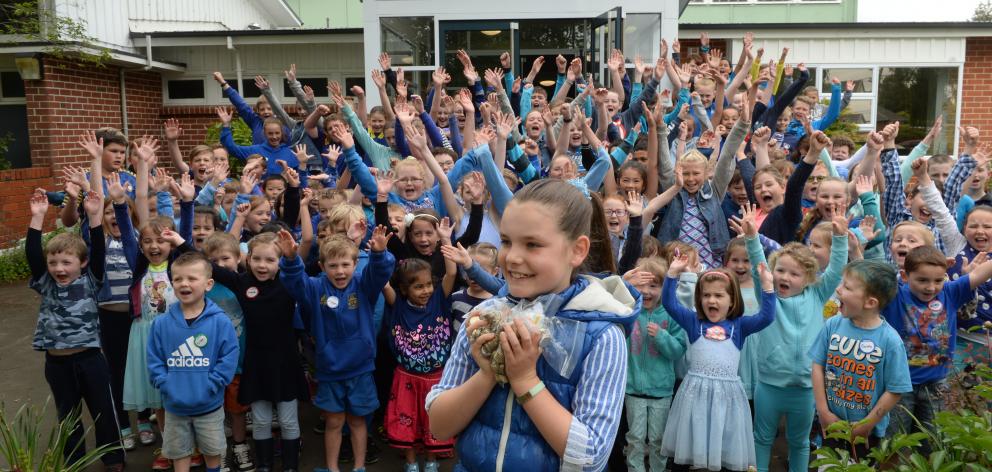
Now that a possible cure is on the table, the 10-year-old feels like she has a purpose - to raise money to help scientists start clinical trials for the cure.
She said a cure would give her freedom - a life without being jabbed with insulin injections four to five times a day.
''It's exciting. It would be so much more helpful for me and my family.
''People have to stop me and check my blood sugars and give me insulin.
''If there was a cure, I'd be able to do heaps more things and my life would be so much better.''
In the past week alone, she has raised nearly $700 by fronting a blue mufti-day fundraiser at Silverstream School.
She and her fellow pupils dressed up in blue for the fundraiser, which was part of Diabetes Awareness Month and World Diabetes Day yesterday.
She said the fundraising would continue until the campaign finished at the end of this month.
Research into type 1 diabetes is being conducted by the Spinal Cord Society of New Zealand and has progressed to the point where a Dunedin laboratory team is successfully growing significant quantities of adult stem cells which may hold the key to a cure.
Research scientist Paul Turner, of Dunedin, said the team had built up a library of bone marrow stem cells and white blood cells from 24 donors, including 12 people with type 1 diabetes and a control group of 12 non-diabetics.
Experiments were being carried out involving comparison and quality control of the cells.
''The project has thrown up some interesting results that are being investigated further, and it is hoped that a further publication will be made early next year.''
He said the research might also benefit people with many other autoimmune diseases, such as multiple sclerosis, rheumatoid arthritis and Crohn's disease, and could be used in novel treatments for spinal cord injuries.












